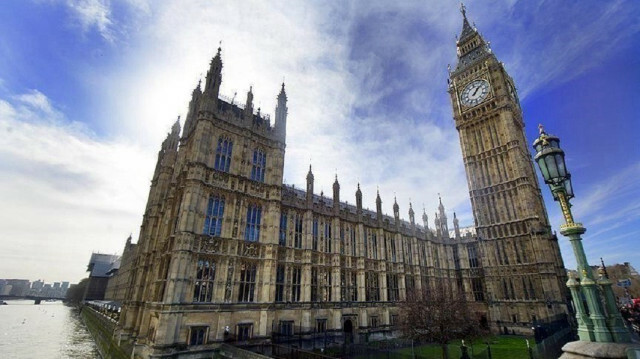
British Defense Secretary Ben Wallace says 'no one wants conflict' but UK 'unequivocally' supports Ukrainian sovereignty and territorial integrity
The UK will supply Ukraine with “light, anti-armor, defensive weapon systems,” amid a Russian military buildup on its border, Britain’s defense secretary said Monday.
Updating lawmakers in the House of Commons, Ben Wallace confirmed “in the light of the increasingly threatening behavior from Russia, and in addition to our current support, the UK is providing a new security assistance package to increase Ukraine’s defensive capabilities.”
Wallace said a small number of UK personnel will also “provide early-stage training for a short period of time.”
He said “this support is for short-range, and clearly defensive weapons capabilities; they are not strategic weapons and pose no threat to Russia.”
“They are to use in self-defense, and the UK personnel providing the early-stage training will return to the United Kingdom after completing it.”
- Concerns
Wallace said tens of thousands of Russian troops are deployed close to Ukraine’s border, adding that the deployment was “not routine” and “they are equipped with tanks, armored fighting vehicles, rocket artillery, and short-range ballistic missiles.”
He added: “We, and our allies, have legitimate and real cause for concern that the configuration and scale of the force being assembled, supported by Russian air and maritime long-range strike capabilities stationed in the region, could be used for the purpose of conducting a multi-axis invasion of Ukraine.”
“But whatever final decision the Russian government takes on the use of such forces, their presence and levels of readiness are contributing to a destabilizing and coercive atmosphere that risks miscalculation at best and – at worst – conflict.”
“Furthermore, in recent weeks, we have observed hardening Russian rhetoric, heightened cyber activity, and widespread disinformation that could serve to provide false pretext for a Russian military intervention,” Wallace added.
Wallace also accused Russia with using false narratives, saying they are part of Kremlin’s playbook and were also used in 2008 prior to the invasion of Georgia and in Ukraine in 2014.
The defense secretary also said that Russia’s claim that NATO is attempting to encircle Russia is an outlandish notion, explaining that “only 1/16th of Russia shares a border with a NATO ally.”
He said NATO is an alliance of like-minded nations, sharing mutual defense commitments and a set of common values, respecting the sovereignty of other nations.
- ‘No one wants conflict’
Britain’s defense chief underlined that Ukraine is not “seeking confrontation, despite the illegal annexation of their lands in Crimea and the occupation of Donbas,” eastern Ukraine.
“I must stress: no one wants conflict,” he said.
Wallace said last week’s engagement at the NATO-Russia Council “made it clear that NATO is open to dialogue with Russia on a range of issues to protect Euro-Atlantic security, including risk reduction, transparency, arms control, and lines of communication.”
“But we will not reward aggression.”
Summarizing recent direct engagement between top UK and Russia officials, Wallace extended “an invitation to my Russian counterpart, Sergei Shoigu, to visit London in the next few weeks.”
“We are ready to discuss issues related to mutual security concerns and engage constructively, in good faith.”
- UK supports Ukrainian sovereignty
Wallace reiterated that the UK “unequivocally” supports Ukraine’s “sovereignty and territorial integrity within its internationally recognized borders, including Crimea.”
“Ukraine is an independent, sovereign country of proud, independent Ukrainian people.”
He said the UK has trained more than 22,000 Ukrainian troops since 2015 through Operation ORBITAL – a training and capacity-building mission in Ukraine by the UK armed forces.
Wallace also warned that “any invasion will not be viewed as a “liberation” but as occupation, and I fear that it could lead to huge loss of life on all sides.”
Saying that he remains hopeful that diplomacy will prevail as “we have more in common than we may think” with Russia, Wallace added: “It is President Putin’s choice; whether to choose diplomacy and dialogue or conflict and the consequences.”
“But Russia’s current behavior is not only threatening the sovereignty of a proud nation state; it is also destabilizing the rules-based international order and challenging the values that underpin it,” Wallace said.
“That is why it is all the more important that we stand in solidarity with those who share our values, including our NATO allies and partners like Sweden, Finland, and Ukraine.”

